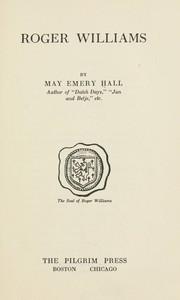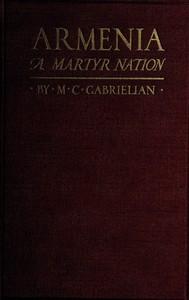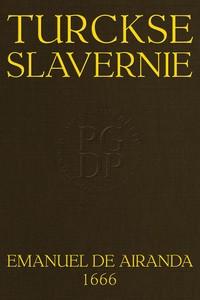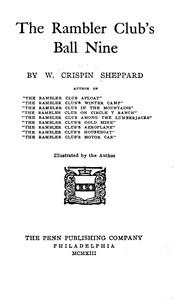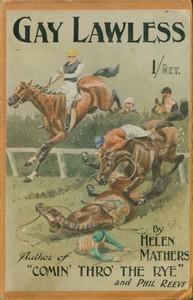|
|
Read this ebook for free! No credit card needed, absolutely nothing to pay.Words: 41905 in 12 pages
This is an ebook sharing website. You can read the uploaded ebooks for free here. No credit cards needed, nothing to pay. If you want to own a digital copy of the ebook, or want to read offline with your favorite ebook-reader, then you can choose to buy and download the ebook. ESSAYS JOHN, THIRD MARQUESS OF BUTE. BRENDAN'S FABULOUS VOYAGE. New Edition. It has been thought desirable to reprint the Essays and other short Works of the late Marquess of Bute in an inexpensive form likely to be useful to the general reader, and thereby to make them more widely known. Should this, the second of the proposed series, prove acceptable, it will be followed by others at short intervals. BRENDAN'S FABULOUS VOYAGE. Brendan, the son of Finnlogh O' Alta, was born at Tralee in Kerry, in the year 481 or 482. He had a pedigree which connected him with the rulers of Ireland, and thus perhaps secured for him a social prominence which he would not otherwise have enjoyed. Nature seems to have endowed him with an highly wrought and sensitive temperament. Putting aside altogether the idealism which caused him, like so many others of his time and race, to give himself to the Church, he displayed throughout life a restlessness which led him to constant journeys, sometimes of the nature of migrations, and the constant inception of projects to which he did not continue long to adhere; and in the statements about him there are elements from which I conjecture that he was probably of the class of persons who furnish good subjects for hypnotic experiments. When he was a year old he was handed over to the care of the nun Ita, when she dwelt at the foot of Mount Luachra. With her he remained until he was seven years old, when she sent him to Bishop Erc, by whom he had been baptized, but during the whole of her life, which lasted nearly as long as his own, he never ceased to regard and to treat her with all the affectionate reverence of a son. His education was continued under Erc, until he grew towards manhood, when he visited other parts of Ireland for the sake of study, but it was to Erc that he returned to be ordained to the Presbyterate. At that period there was a sort of passion among the Celtic clergy for retiring into deserts after the manner of the monks and hermits of Egypt, and the islands of the Western and Northern ocean, if they could show nothing like the burning sands of Africa, supplied deserts enough of a different sort. It was only in accordance then with a common custom of his day, that Brendan, after his ordination, set out by sea with a few companions, to find a place where to found a monastery. It is to be remarked also that this was just about the time of the migration of the Royal Race of the Dalriads to the country which has ultimately received from them the name of Scotland, and the project therefore bears a strong resemblance to that in which Columba succeeded about 60 years later. If Brendan had not failed, perhaps Columba would not have come. The wanderings or explorations of Brendan and his companions appear to have lasted several years, during which it may be presumed that they were in the habit of laying up somewhere for the winter. It was doubtless partly owing to the restlessness which was a part of his nature, that he finally settled nowhere, and returned to Ireland. In Ireland he did a good deal of work, but Ita urged him to try and do good elsewhere, and he went over with some of his friends to Britain, possibly in connection with movements affected by the career of the historic Arthur, who was killed at Camlan or Camelon in 537. The Christian Irish at that time certainly made endeavours to assist the Christian party among the Britons. The nun Edana was making her attempts, either in person or by her disciples, to found her girls' schools in the south of Scotland, and it is not impossible that Ita thought that she might also accomplish some good by sending forth a male emissary. In connection with Brendan's sojourn in Britain, there is a most curious mention of the use of a Greek Liturgy somewhere in the British Church. There is a statement that Brendan was at the head of the celebrated Welsh monastery of Llancarfan. He also went over to Brittany to see Gildas the Wise, who was bewailing the woes of his native land on the shores of the Morbihan. He ultimately returned to the Western Islands, and there succeeded at last in founding two monastic settlements, one in Tiree, at a place which the writers call Bledua, and one in an island called Ailech, which it seems to me may possibly mean Islay. Then he went back to Ireland, and started another monastery in a desert island in Loch Oisbsen, which was given to him by Aedh, the son of Ethdach. Hence, however, he again moved in 559, and founded the great monastery of Clonfert, an act which is the principal achievement of his life. He was friendly with the principal persons of his own race, time, and class. He seems, as I have said, to have possessed the peculiar temperament, which some call sensitive and others mediumistic, and which leads to the phenomenon generally known as second-sight, for, putting aside all other records about him which point in the same direction, it is recorded of him, not only by Adamnan, but also by Cuimine the Fair, that on one occasion when he came over, along with Comgall of Benchor, Kenneth of Aghaboe, and Cormac o' Leathain of Durrow, to visit Columba, who was then staying in Himba , and Columba at their request celebrated before them on the Sunday, he afterwards told Comgall and Kenneth that during part of the ceremony Columba had seemed to him to be standing at the bottom of a pillar of fire streaming heavenwards. He lived to an extreme old age, and was in his 96th year when the end came. When he felt that it was at hand, he went to see his sister Briga, and I quote the sentences which follow, on account of the quaint naturalism which inspires them. 'Among other things, he taught her concerning the place of her resurrection. "Not here," saith he unto her, "shalt thou rise again, but in thine own land, that is in Tralee. Therefore, go thou thither, for that people will obtain the mercy of God by thy means. This is a place of men, not of women. Now is God calling me unto Himself out of the prison house of this body." When she heard that, she was grievously afflicted, and said, "Father beloved, we shall all die at thy death. For which of us could live when thou wast absent living? Much less, when thou art dead." Brendan said farther, "On the third day hence, I shall go the way of my fathers." Now that day was the Lord's Day. Thereon, after the sacraments of the altar had been offered, he saith to them that stood by, "In your supplications, commend my going forth." And Briga speaketh and saith, "Father, what fearest thou?" He saith, "I fear that I shall journey alone, that the way will be dark--I fear the unknown country, the presence of the King, the sentence of the Judge." After these things he commanded the brethren to carry his body to the monastery of Clonfert secretly, lest, if they did it openly, it should be kept by them among whom they should pass. Then when he had kissed them all one by one, he saith unto holy Briga, "Salute my friends on my behalf, and say unto them to beware of evil speaking, even when it is true, how much the more when it is false." When he had so spoken and foretold how some things would be in time to come, he passed into everlasting rest, in the 96th year of his age.' He died, May 16, 577. ROGER WILLIAMS ROGER WILLIAMS Free books android app tbrJar TBR JAR Read Free books online gutenberg More posts by @FreeBooks
: Armenia a martyr nation A historical sketch of the Armenian people from traditional times to the present tragic days by Gabrielian Mugurdich Chojhauji - Armenian question; Armenia@FreeBooksThu 08 Jun, 2023
|
Terms of Use Stock Market News! © gutenberg.org.in2025 All Rights reserved.

